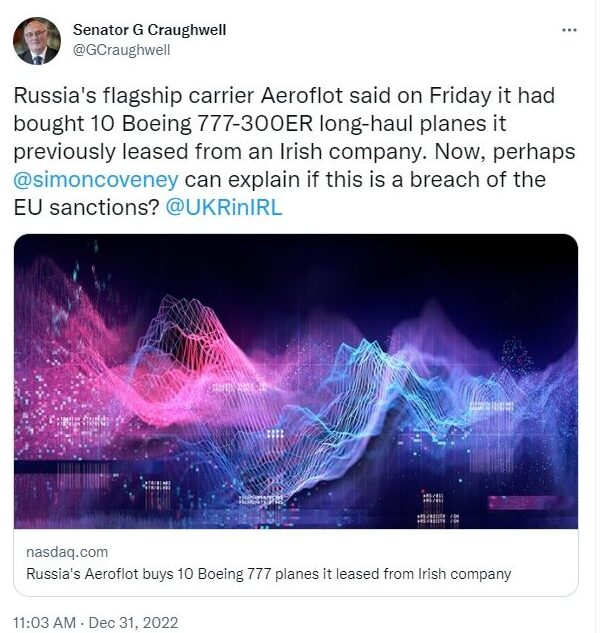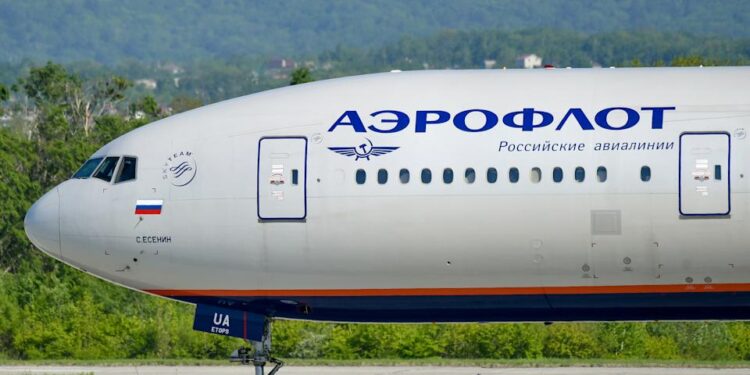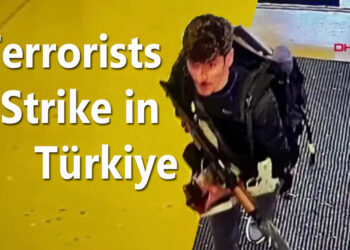by Miceál O’Hurley
MOSCOW — Russian air carrier, Aeroflot AFLT.MM announced Friday it has completed the purchase of 10 Boeing 777-300ER long-haul aircraft. The purchase, purported to be buy-outs of leases from Irish aircraft leasing companies instituted in 2013 and 2014. “Aeroflot will continue to work on further implementation of aircraft buyout transactions in order to maintain the current fleet of foreign-made aircraft,” Aeroflot announced on Friday. Aeroflot subsequently issued a clarification stating the transaction was completed after following all applicable Russian and foreign regulatory authorisations, “On taking measures to settle legal relations with foreign lessors to ensure the transfer of ownership rights to the jurisdiction of the Russian Federation.”
The news that Russia has purchased 10 Boeing aircraft from an Irish corporate entity would be a violation of EU sanctions passed and adopted by Ireland since Russia’s invasion of Ukraine in 2014. Following Russia’s expanded aggression of Ukraine on 24 February 2022 Ireland has joined their EU counterparts in voting for an adopting and increased regime of sanctions designed to punish Russia for its illegal invasion, occupation and attempts to annex sovereign parts of Ukraine.
A major goal of the EU sanctions has been to deprive Russia of technology that could be used for warfare and otherwise deprive it of the economic means to continue to wage war in Europe. According to a 26 December statement by the Department of Enterprise, Ireland remained “fully committed to the sovereignty and territorial integrity of Ukraine” within its recognised borders. The statement further asserted that the Irish Government continued to maintain a “maximalist position” on sanctions since the war started. A request for comment and clarification from the Department of Foreign Affairs and the Department of Enterprise prior to publication was not answered.

According to information released by the Department of Enterprise in December 2022, Ireland has provided 59 separate derogations from sanctions on Russia this year alone. In a further statement the Department stated, “The EU must make clear to Russia that its actions will have consequences”. “Exemptions and derogations are included for very good reasons, including to ensure security of supply of food and other essential products on the European market,” according to the Department. The aircraft purchased by Aeroflot do not seemingly apply to such sanctions and no mention of whether or not Aeroflot obtained a derogation from sanctions was made or denied by the Department.
To date, the Department of Foreign Affairs has steadfastly refused to identify the beneficiaries of the derogations, claiming it was, “not in a position to provide any further details” on any derogations they had to approve. The Department of Foreign Affairs further stated, “No applications for a derogation have been refused to date, and no derogations have been unilaterally revoked by the department”. Ireland’s Central Bank, which plays a monitoring role in ensuring EU sanctions are fully implemented, has equally declined to disclose the names of organisations had been granted derogation waivers, stating, “The Central Bank has not refused or cancelled any derogations to date; however, given its confidential nature, we are not in a position to provide any further information.” Critics of the Irish Government and security analysts claim Ireland is wrongly claiming confidentiality as a reason to shield scrutiny of its derogation regime.
The lack of transparency by the Irish Government concerning the sighting of Russia vessels in Irish ports, waivers of penalties and fees owed by companies doing business with Russia or this particular purported transaction of Irish leasing companies completing the sale of 10 Boeing 777-300 aircraft by Aeroflot or the status of the certificates of airworthiness that were revoked for aircraft leased to Russia has caused significant concern amongst EU allies and Ukrainian officials. Beyond any sale of the Boeing 777-300 aircraft to Aeroflot the lack of disclosure raises serious concerns about spare parts. According to one industry expert that declined to be identified, “It is highly improbable that Aeroflot would have purchased such advanced aircraft without assurances that they would be able to access significant stocks of spare parts, including advanced avionics and computer equipment, including chip sets, to maintain the fleet and without full disclosure there remains concerns these parts could be used to feed Russia’s military arsenal including missiles and drones which they are using to attack civilian infrastructure in Ukraine”. Questions arise concerning Ireland’s responsibility in war crimes should any such spare parts be found to have been used in attacks against Ukrainian civilians or in Russia aircraft or drones.
A November 2022 report published by Conflict Armament Research which arose from the EU funded iTrace project exposed the illicit use of sanctioned technology in weapons of warfare. The report details how technology banned from export or acquisition by sanctioned regimes, identified by manufacturer markings, serial numbers and other unique identifiers are finding their way into weapons used on battlefields from Syria to Ukraine. According to the Conflict Armament Research web site, “iTrace® is a European Union and German Government-funded project (Council Decisions 2013/698/CFSP, 2015/1908/CFSP, 2017/2283/CFSP and 2019/2191/CFSP), which provides policy makers with the precise, verified information required to understand weapon transfers in detail and, thereby, develop effective, evidence-based weapon management and control. The project combines an extensive programme of in-conflict field investigations with the world’s most powerful public access weapon tracking database”. Components are routinely found in fragments from missiles and captured weapons providing indelible proof that supply chains are conveying banned technology from reaching sanctioned States.
In November 2022, the US Department of Commerce’s Bureau of Industry and Security instigated an investigation to determine how U.S., Japanese, German and Israeli technology ended-up in Iranian drones being used to attack civilians and critical infrastructure in Ukraine. According to one source, criminal referrals are expected. While chipsets are made and produced widely, and sold to many third-party vendors, the iTrace investigative methodology instituted by the Conflict Armament Research team is capable of following illicit technology use in armaments and weapons of warfare from manufacture to their use by sanctioned States. At times, counterfeited technology is exposed and yet often identified at its source.
Technology that might end-up being weaponsied by Russia arising from any Aeroflot acquisition or supply chain acquisition arising from the purported Irish transaction would be readily identifiable from maintenance and manufacturing records. Even if Ireland did provide a derogation, any proof that technology tied to this transaction between Aeroflot and any Irish corporate entities would likely lead to scrutiny in criminal investigations for breaches of international law and potential war crimes.
 Military veteran and Irish Senator Gerard Craughwell Tweeted on 31 December, “Russia’s flagship carrier Aeroflot said on Friday it had bought 10 Boeing 777-300ER long-haul planes it previously leased from an Irish company. Now, perhaps @simoncoveneycan explain if this is a breach of the EU sanctions? @UKRinIRL”. A search of Simon Coveney’s Twitter feed and the Department of Enterprise web sites do not show that Coveney has replied to Craughwell’s questioning of the transaction. Coveney previously served as Minister of Foreign Affairs prior to taking the Ministry of Enterprise portfolio in December during the coalition Government’s change of ministerial seats. Coveney would have intimate knowledge of the 59 reported EU sanctions derogations and this transaction as both would have been included in his ministerial responsibilities.
Military veteran and Irish Senator Gerard Craughwell Tweeted on 31 December, “Russia’s flagship carrier Aeroflot said on Friday it had bought 10 Boeing 777-300ER long-haul planes it previously leased from an Irish company. Now, perhaps @simoncoveneycan explain if this is a breach of the EU sanctions? @UKRinIRL”. A search of Simon Coveney’s Twitter feed and the Department of Enterprise web sites do not show that Coveney has replied to Craughwell’s questioning of the transaction. Coveney previously served as Minister of Foreign Affairs prior to taking the Ministry of Enterprise portfolio in December during the coalition Government’s change of ministerial seats. Coveney would have intimate knowledge of the 59 reported EU sanctions derogations and this transaction as both would have been included in his ministerial responsibilities.
Some public comments on Craughwell’s Tweet seemingly indicate that Russia had effectively “stolen” the aircraft by refusing to return them after sanctions were imposed in March 2022. The assertion that Russia is simply regularising the ‘theft’ of the aircraft by claiming a purchase agreement would still run contrary to international law and EU sanctions without specific derogation(s) provided by the Irish Government.
This is a developing story.















































